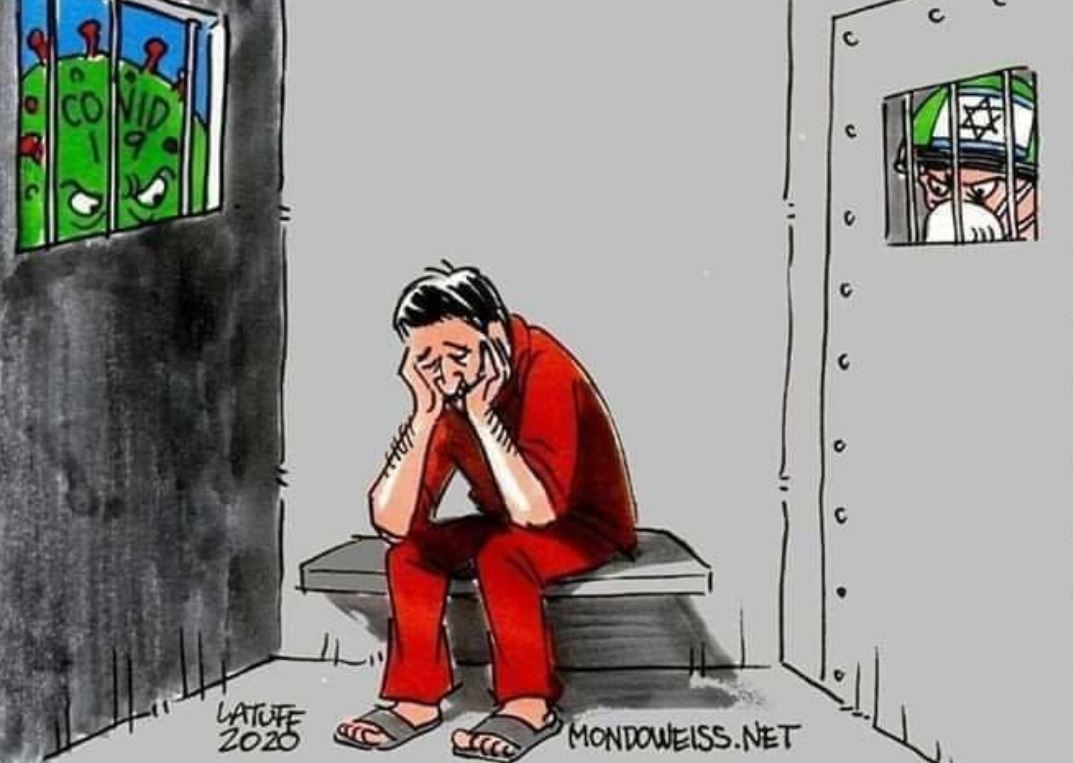The Palestinian Detainees Committee has reported that 200 Palestinian detainees became infected with the coronavirus in January of 2021, which increases the number of confirmed COVID cases in Israeli prisons to 340.
The Committee stated that most of the infected detainees are held in Ramon prison and the Negev Detention camp.
The head of the Palestinian Detainees Committee, Hasan Abed-Rabbo, said five political prisoners were transferred to the infamous Ramla prison clinic, which lacks basic supplies and specialists, despite the serious deterioration in their health.
The detainees are Bassel Ajaj (serving a life-term prison sentence), Ezzeddin al-Jo’ba, Nafeth al-Haj, Ayman Seder, and Khaled Gheithan.
It is worth mentioning that Gheithan, 59, from Qibya town northwest of Ramallah, is facing serious complications from the coronavirus, and was recently moved to Soroka medical center for just a few hours, before he was moved back to prison despite his bad health.
He has oxygen deficiency in arterial blood and cannot breathe with an oxygen tank at all times.
Speaking to Palestine Radio on Saturday, Abed-Rabbo said there is a serious concern for the health of the detainees, especially due to medical neglect, in addition to barring all visitations even from lawyers and medical committees.
He added that an Israeli court also denied an appeal for the release of Husein Masalma, who is currently hospitalized at the Soroka medical center, due to a sharp deterioration in his health, especially since he has cancer.
In addition, the official also said that Wa’el al-Jaghoub has been in solitary confinement in Megiddo prisons for the past 210 days, in addition to Fadwa Hamada, 82 days, Omar Kharwat, 47 days, and Nawal al-Fatiha, seven days.
In related news, two detained siblings, Bilal, 36, and Bassam Thiab, 37, from Jenin in northern West Bank, are ongoing with a hunger strike they started twelve days ago, protesting the extremely bad living conditions they are subjected to in Israeli prisons.
Meanwhile, the Palestinian Prisoners’ Society (PPS) reiterated its calls on various organizations, especially the Red Cross to act on closely monitoring the conditions of the detainees and to ensure Israel allow them to contact their families.
The PPS added that Israel is refusing to allow the detainees to have sanitary products, in addition to the fact that dozens of detainees are held in small rooms, not even fit for human use.

